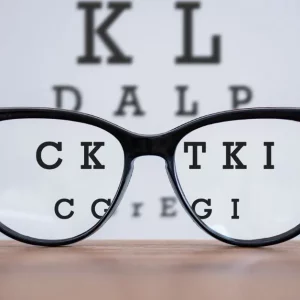Does a brain injury affect a person’s intelligence?
Brain injury can affect many cognitive abilities that make it more difficult for a person to learn new information. However, most of the time, it does not change a person’s overall intelligence.
Today’s article will discuss how a brain injury affects intelligence and can impact learning, along with the steps you can take to help your brain absorb more information.
Does Brain Injury Affect Intelligence?
After any brain injury, even a mild one, there tends to be a drop or loss of IQ, but this score usually improves as time passes and the brain heals.
This is why researchers argue that most “intelligence loss” after brain injury is really just a result of trauma. In other words, the brain is too occupied with repairing itself that it does not have the resources to answer test questions.
That’s why IQ test numbers tend to be lower in the early stages of recovery, but go back up to baseline with time.
Strictly speaking, the person doesn’t lose any intelligence they had before their injury.
However, the brain does lose the ability to access that knowledge as quickly and efficiently as before the injury.
This is an important distinction. Just because someone needs more time to process information after their brain injury doesn’t mean the person has lost intelligence.
How Brain Injury Affects Learning
Certain cognitive difficulties make it nearly impossible for some TBI patients to absorb new information.
This can cause brain injury survivors to experience the symptoms of a learning disability, such as ADHD, even though they do not have that disorder.
The following are the main cognitive effects of brain injury that impact a person’s ability to learn.
1. Memory problems
Memory issues are the most common cognitive impairment following a brain injury.
These memory problems don’t tend to affect a person’s long-term memory. Instead, they usually impair short-term and working memory.
Working memory is what the brain uses to hold on to information it just received. For example, that’s how you can recognize what the person talking to you just said.
When working memory is impaired, it becomes almost impossible to absorb what you hear or read the first time. You may need to read a paragraph several times before you understand it. This can make learning a new subject especially difficult.
2. Attention and Concentration Difficulties
Another common cognitive issue that can impair learning is attention and concentration difficulties.
Short attention spans cause people with TBI to have trouble focusing for lengthy periods, and they may also have trouble attending to more than one thing at once. This can lead to problems such as:
- Difficulty finishing a task or project
- Restlessness
- Problems holding a conversation
It can also make it difficult to stay focused long enough to retain new information.
Attention is considered the building block of learning. That is why it is critical to find ways to overcome attention problems after brain injury.
3. Organization Challenges
After a TBI, the brain can have difficulty organizing new information, which will make things much harder to process.
This can have a huge impact on learning. Even if the person can pay attention and remember what was said, they still won’t understand it unless their brain can organize it logically.
Disorganized thinking can have other negative effects as well. For example, it can cause the person to make rash or illogical decisions because they can’t analyze a situation and choose the best option.
4. Slower Processing Speeds
Information processing speeds and efficiency are commonly impaired following a brain injury. As stated before, just because it takes a person with a TBI longer to do a task or increased time to follow a command doesn’t mean that they have lost their intelligence. Their brain is just working overtime.
How to Overcome Learning Difficulties After Brain Injury
Memory, attention, organization problems, and slower processing speeds are the main causes of learning difficulties after brain injury.
Therefore, the best way to improve your ability to learn and retrieve new information is to focus on developing those skills.
Fortunately, you can train your brain with cognitive rehabilitation exercises that will let stimulate your brain to recover some mental skills.
For example, short-term memory exercises can help you recall things you just learned. And attention skills can be improved by starting with short, easy activities and slowly increasing the load on your attention.
Organization skills are a little more complex to train on your own. For these, we recommend working with a Speech Language Pathologist or an Occupational Therapist specialized for cognitive rehabilitation. They show you strategies to help you organize your thoughts better.
Processing speeds are best developed with brain training apps or programs like the Constant Therapy app. Here, there are processing speed challenge games, and your progress is tracked well with detailed reports so you can see improvements. This particular program has the support you can access to ensure you are doing activities tailored to your needs.
Brain Injury and Intelligence
Ultimately, a brain injury does not make a person less intelligent. However, it does make certain mental activities, such as learning, require more time and effort.
This is because the brain works less efficiently after a brain injury. Following a TBI, neural connections that the brain used to react quickly are slowed by the injury, which makes it difficult to perform complex actions.
The good news is these neural connections can be restored by activating neuroplasticity through cognitive exercises. It is important to perform these cognitive exercises regularly so that your brain gets the right level of stimulus it needs. Consult with your neurologist or clinician to determine how much time each day you should engage in cognitive training. Programs like Constant Therapy are a great way to train your brain from home.
Want to learn more about the CT Speech and Cognitive Therapy App? Get Started Here.
(Link opens a pop-up for uninterrupted reading.)
Therefore, the more you practice improving your attention, organization, memory, and processing speeds, the more your brain will reinforce those neural pathways.
As these skills increase, you should also notice that your learning skills improve as well.










